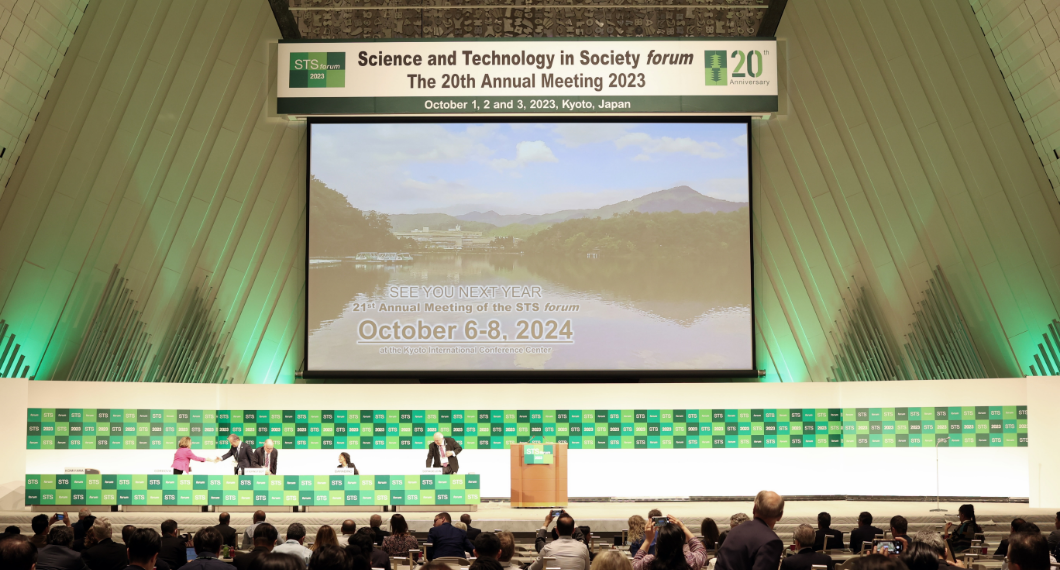
Science and Technology in Society forum (STS forum) brings together global opinion leaders consisting of not only cutting-edge scientists, but also policymakers, business leaders, university presidents, research institute directors, science and technology investment foundations, and the media to discuss the benefits of advances in science and technology, and also the issues they newly raise. Founded in 2004, STS forum holds an annual meeting in Kyoto in early October. This year’s 20th anniversary meeting was attended by nearly 1,500 leaders from over 80 countries, regions, and international organizations.
Partly prompted by the recent emergence of generative AI as a focus of global attention, challenges and prospects related to developments in AI featured prominently in the discussions at this year’s meeting, which included a plenary session that broadly addressed the Lights and Shadows of AI, as well as concurrent sessions on AI in Health, AI in Education, and Data in AI.
In total, this year’s meeting featured 10 plenary sessions involving lively exchanges of views. These included sessions on topics such as Lights and Shadows of Human’s Activity in Space and Global Health – What the world needs to prepare for the next pandemic, as well as a Koji Omi Memorial Lecture given by Prof. Svante Pääbo, the 2022 Nobel Laureate in Physiology or Medicine.
There were also 24 concurrent sessions held across 8 themes, covering a wide range of topics. For example, on the theme of energy, participants discussed achieving zero emissions in land, sea, and air transport, as well as progress in the development of fusion technologies, while the sessions on climate change addressed adaptation technologies and urban environments, and the sessions on Earth and commons took up food and water security, and biodiversity. Turning to the theme of life sciences, new frontiers in biotechnology and healthy aging were discussed, while the sessions on innovative engineering considered quantum technologies and hyper automation. There were also sessions on cooperation in science and technology, which addressed collaboration among academia, industry and government, and nurturing startups, as well as sessions on science and technology education, which considered how to foster new generations of scientists with diversity. Another theme was digital society, which took up trust of information and digital equity. The following are some highlights from this year’s annual meeting.
The opening session, The World in 2023 – What do we need from S&T?, was chaired by Prof. Hiroshi Komiyama, Chairman, STS forum. He was joined by Mr. Fumio Kishida, Prime Minister of Japan; Dr. Marcia McNutt, President, National Academy of Sciences, U.S.A.; Prof. Mohamed Belhocine, Commissioner for Education, Science, Technology and Innovation, African Union Commission; and Mr. Masakazu Tokura, Chairman of KEIDANREN.
-

[Chair] Prof. Hiroshi Komiyama, Chairman, Science and Technology in Society forum (STS forum); Chairman, Mitsubishi Research Institute, Inc., Japan
-

Mr. Fumio Kishida, Prime Minister, Government of Japan
-

Dr. Marcia McNutt, President, National Academy of Sciences, U.S.A.
-

Prof. Mohamed Belhocine,
Commissioner, Education, Science, Technology and Innovation, African Union Commission (AUC) -
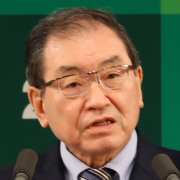
Mr. Masakazu Tokura, Chairman, KEIDANREN; Chairman of the Board, Sumitomo Chemical Co., Ltd., Japan
In their remarks, the speakers reaffirmed the huge potential benefits of advances in science and technology, including the latest progress in AI technologies, and discussed how to maximize such benefits and minimize the risks. Furthermore, they believed in the power of science and technology to tackle the major challenges facing humankind, such as hunger, poverty, sustainable development, and climate change, while recognizing that science and technology could also entrench existing disparities if they are not managed appropriately. To ensure that science and technology and society advance along the path of light to a more sustainable and inclusive future, collaboration is paramount. Such collaboration must be international, it must transcend government, academia, and business, and it must include not only natural sciences but also the social sciences. Above all, it is essential to foster public trust and engagement by showing that science and technology is aligned with the public’s values, because without buy-in from the public, science and technology will not be able to transform society for the better.
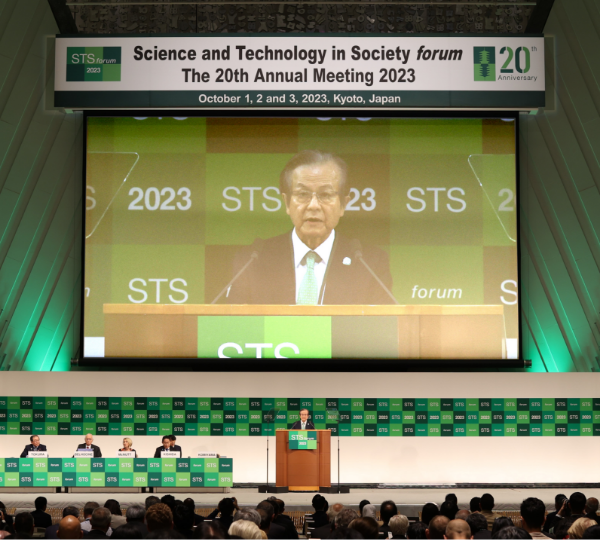
Prof. Hiroshi Komiyama, Chairman, Science and Technology in Society forum (STS forum)
This was followed by the Koji Omi Memorial Plenary session on Lights and Shadows of AI, which was chaired by Prof. Matthias Kleiner, Professor, Technical University of Dortmund. During the session, the speakers noted that no technology has had as profound an impact in so short a time as the development of AI and that the recent developments in generative AI technologies have particularly captured the public imagination. AI has the power to transform all aspects of society by generating huge gains in productivity, revolutionizing research, enabling better and more cost-effective public services, optimizing supply chains, and offering customization at scale, among many other benefits. However, there are also many potential shadows associated with AI that must be addressed, including the spread of misinformation and disinformation, the perpetuation and entrenchment of human biases, public fears of job displacement, privacy intrusions, and copyright infringements. Another issue is that AI is now being applied to far more difficult issues than in the past, with more conflicting factors and trade-offs. AI systems cannot “solve” these issues without humans correctly identifying and precisely articulating the “objective” that should be met. AI is advancing at a much faster pace than related regulatory developments, and greater, accelerated, and internationally collaborative efforts are needed to implement a framework for managing the risks of AI. Such a framework must be responsive, proportionate, and future-proof, and there must be adequate communication to reassure the public that this work is being done. Care must also be taken to ensure that different cultures and perspectives are being reflected.
-
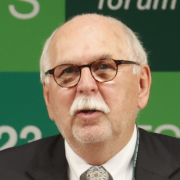
[Chair] Prof. Matthias Kleiner, Professor, Technical University of Dortmund, Germany

Above: from left to right, Mr. Yasutoshi Nishimura, Minister of Economy, Trade and Industry, Japan, Ms. Saba Samiei, Founder and CEO, MACSO Technologies; Founder and CEO, Comfort.AI, New Zealand, Mr. Mike Yeh, Regional Vice President, Corporate External and Legal Affairs, Microsoft Asia, Microsoft, Singapore, Prof. Yutaka Matsuo, Professor, Graduate School of Engineering, The University of Tokyo, Japan, Dr. Peter Norvig, Distinguished Education Fellow, Human-Centered Artificial Intelligence, Stanford University; Research Director, Google Research, Google Incorporated, U.S.A., Prof. Dame Angela McLean, Government Chief Scientific Adviser, Department for Science, Innovation and Technology, Government Office for Science, U.K., Prof. Matthias Kleiner, Professor, Technical University of Dortmund, Germany
-
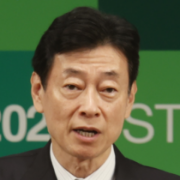
Mr. Yasutoshi Nishimura, Minister of Economy, Trade and Industry, Japan
-
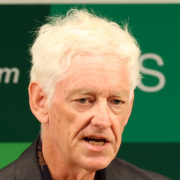
Dr. Peter Norvig, Distinguished Education Fellow, Human-Centered Artificial Intelligence, Stanford University; Research Director, Google Research, Google Incorporated, U.S.A.
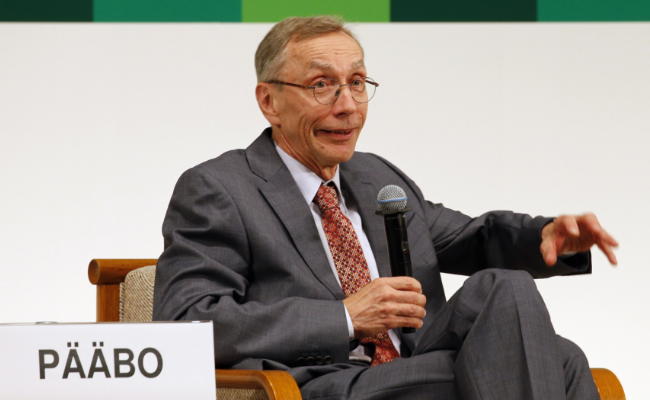
Prof. Svante Pääbo, Director, Max Planck Institute for Evolutionary Anthropology, Germany; Adjunct Professor, Human Evolutionary Genomics Unit, Okinawa Institute of Science and Technology (OIST), Japan [Nobel Laureate 2022 (Physiology or Medicine)]
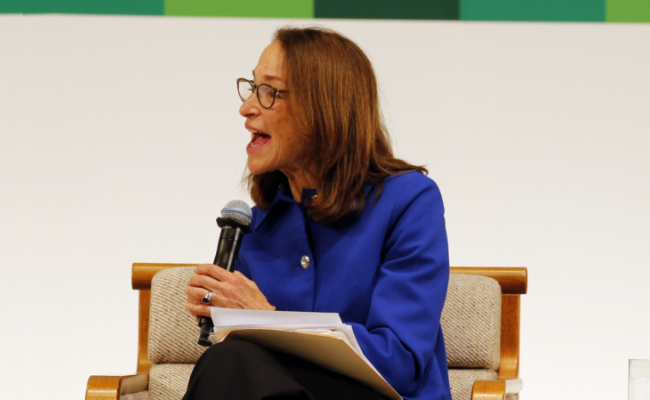
[Chair] Dr. Margaret A. Hamburg, Co-President, InterAcademy Partnership (IAP), U.S.A.
In the Koji Omi Memorial Lecture, Prof. Svante Pääbo, Nobel Laureate and Director of the Max Planck Institute for Evolutionary Anthropology, gave a keynote lecture presenting his research in paleontology and the human genome, in which he painstakingly sequenced neandertal DNA by combining short sequences extracted from paleontological remains and mapping these to the modern human genome. This research has revolutionized scientific understanding of early humanity, allowing researchers to better understand species mixing between homo sapiens and neandertals, pinpoint early human movements around the globe more accurately, and even identify new species of human and our common ancestors. It also enables further research into the contribution of residual neandertal DNA to the expression of the modern human genome. The chair, Dr. Margaret A. Hamburg, Co-President of the InterAcademy Partnership, U.S.A., and Prof. Pääbo discussed his unusual research career path and the background behind this breakthrough research, considering what its results mean for genomic science, paleontology, and biological anthropology, as well as clues it provides on the nature and fate of humanity as a species. Prof. Pääbo also answered questions from the audience about the findings, implications, and future prospects of his research.

Prof. Svante Pääbo
-

Dr. Margaret A. Hamburg
The session on Path to Sustainability, was chaired by Prof. Antoine Petit, Chairman and CEO of the National Center for Scientific Research, France. In the session, it was noted by the speakers that although the world is aware of the need to reduce its carbon footprint at every level, not enough progress is being made. The speakers also acknowledged the importance of collaboration, both internationally and among governments, industries, and academia, in addressing climate change and moving the world down the right path for achieving sustainability. Furthermore, it is essential for academia to provide transparent knowledge to the public so as to better improve the general understanding of sustainability. In addition, the speakers discussed the importance of innovation in order to provide new solutions and technology to address sustainability, including the role of nuclear energy and nuclear fusion. They also noted that regulatory and economic support from governments will be needed to achieve sustainability, both through supporting innovation and also improving education for younger generations so that individuals can engage in more sustainable activities in their daily lives.
-

[Chair] Prof. Antoine Petit, Chairman and CEO, National Center for Scientific Research (CNRS), France
-

Dr. Michael V. Drake, President, University of California, U.S.A.
The next session was entitled Global Health – What the world needs to prepare for the next pandemic. Chaired by Sir Paul Nurse, Director and Chief Executive of The Francis Crick Institute and the 2001 Nobel Laureate in Physiology or Medicine, the session explored action which can be taken now to prepare against new types of future pandemic that have the potential to be even more disruptive than COVID-19. While COVID-19 highlighted global inadequacies in pandemic preparation, it resulted in rapid scientific innovation to both vaccines and therapies, and provided the basis for collaborative partnerships, initiatives, and frameworks that will be invaluable in future rapid pandemic response. The speakers introduced new satellite monitoring techniques and institutes and strategic centers being established to strengthen pandemic preparedness. They also made recommendations for enhancements to pandemic surveillance, epidemiological modelling, vaccine development and utilization, and pathogen research, while emphasizing the need to improve international and private-public collaboration and science communication equitably, based on a foundation of openness, transparency, and trust. The speakers were especially concerned by epidemiological threats associated with climate change, including emerging and reemerging pathogens, and increased zoonotic spillover and geographic ranges for vector-borne diseases.
-

[Chair] Sir Paul Nurse, Director and Chief Executive, The Francis Crick Institute, U.K. [Nobel Laureate 2001 (Physiology or Medicine)]
-

Prof. Stewart Cole, President, Institut Pasteur, France
The role of business in science and technology was addressed in the session on Science and Technology for Business, which was chaired by Mr. Terry Brady, President and CEO of UL Research Institutes. The speakers noted that innovations are accelerating change across every sector of society, but also increasing risks and giving rise to growing concerns about unintended consequences. However, innovations, if brought to worldwide scale, have the potential to ameliorate critical risks, and this is where the business sector has a crucial role to play. During the session, the speakers shared their expertise on the latest developments in a range of fields, including electrified vehicles, AI, quantum technologies, semiconductors, and superconducting materials, as well as the associated challenges and how these can be overcome. The speakers also noted that businesses are increasingly recognizing that they have social responsibilities beyond profit-making and embracing the opportunity to tackle major societal challenges such as carbon neutrality, sustainable development, and energy issues.
-

[Chair] Mr. Terry Brady, President and CEO, UL Research Institutes, U.S.A.
-

Dr. Mark Liu, Chairman, Taiwan Semiconductor Manufacturing Company, Ltd. (TSMC), Taiwan
The session, Key Messages from Concurrent Sessions, was chaired by Prof. Pavel Kabat, Secretary-General of the International Human Frontier Science Program Organization and former Director General & CEO of the International Institute for Applied Systems Analysis. It began with a report on the activities and experiences of the Young Leaders. Young Leaders past and present expressed their respect for the spirit and mission of STS forum and their appreciation for the valuable opportunities offered by the Young Leaders Program and the Young Leaders Alumni Network. In particular, they noted that STS forum reaffirmed the power of collaboration and the importance of inclusiveness and equitability. This was followed by a reporting of the key messages from the concurrent sessions. The Energy sessions discussed efforts to reduce emissions across different sectors and the potential and challenges of fusion energy. The sessions on Climate Change took up climate adaptation and resilience, solutions for achieving sustainable and resilient urban environments, and the critical role of green energy. In the Earth and Commons track, there was shared deep concern about the state of the Earth’s commons, discussion of the interconnectedness of climate issues, biodiversity decline, and inequality and poverty issues, and a call to proceed with caution in deep-sea exploration and exploitation. The Life Sciences sessions took up the potential and risks of AI in healthcare, ways to harness emerging biotechnologies and make them trustworthy and accessible, and factors that contribute to healthy aging. The Innovative Engineering track covered a range of topics related to revolutionary materials and devices, quantum science and technologies, and AI and hyper automation. In the Cooperation in S&T track, topics included the role of science and technology as a driver for development, the power of and keys to collaboration among academia, industry, and government, and what societies can do to nurture more innovation-based startups. The S&T Education sessions highlighted the importance of inclusion and diversity to science, technology, and innovation, the benefits and pitfalls of AI in education, and how education can foster trust in science. Finally, the Digital Society track covered ways to safeguard trust in information, the need for global efforts to bridge the digital divide, and the opportunities and challenges of the increasing amounts of data generated by AI algorithms.
-

[Chair] Prof. Pavel Kabat, Secretary-General, International Human Frontier Science Program Organization (HFSPO); former Director General & CEO, International Institute for Applied Systems Analysis (IIASA)
-

Dr. Amadou Diarra, Senior Vice President, Global Policy, Advocacy & Government Affairs, Bristol-Myers Squibb, U.S.A.
-

Prof. K. VijayRaghavan, former Principal Scientific Adviser to the Government of India, National Centre for Biological Sciences; DAE Homi Bhabha Chair, National Centre for Biological Sciences, TIFR, India
-

Prof. Motoko Kotani, Executive Vice President for Research, Tohoku University; Vice President, International Science Council (ISC), Japan
With Dr. Ismail Serageldin, Founding Director Emeritus, The Library of Alexandria, serving as its chair, the closing session covered Science and Technology for the Future of Humankind. The speakers began by highlighting the need to ensure that humanity is at the heart of the scientific community and its work. Science should be human-centric, not leave anyone behind, and unite people instead of dividing them. Science’s benefits must also be carefully and effectively communicated to society. The speakers then turned their attention to the tremendous but frequently underappreciated value of basic research, highlighting the need to invest more resources in basic research, defend free and independent research and academic freedom, share knowledge and experiences, and cooperate globally. The speakers also reflected on the three days’ discussions and noted the ambitious agenda that STS forum is attempting to take on. They noted that the hope and determination shared by participants suggest that this agenda, though broad, is not beyond the reach of STS forum. Furthermore, they emphasized the importance of partnership in tackling these wide-ranging issues. Lastly, the speakers reaffirmed the central role of science and technology in enabling advancements in human society. At the same time, they noted that the world continues to face critical issues including climate change, inequality, hunger, and poverty. Nevertheless, science and technology have the power to transform societies for the better, while keeping human activities in harmony with nature. For that to occur, however, science and technology must incorporate the humanities and social sciences, and be regulated by ethical and safety guidelines that protect the public while encouraging innovation.
-

[Chair] Dr. Ismail Serageldin, Founding Director Emeritus, The Library of Alexandria, Egypt

From left to right, Prof. Hiroshi Komiyama, Chairman, Science and Technology in Society forum (STS forum), Japan, Dr. France A. Córdova, President, Science Philanthropy Alliance; former Director, National Science Foundation (NSF), U.S.A., Prof. Göran Stiernstedt, Chairman of the Board, Karolinska Institutet, Sweden, Dr. Gilda A. Barabino, Chair, AAAS Board of Directors; Past President, American Association for the Advancement of Science (AAAS); President, Olin College, U.S.A., Dr. Ismail Serageldin, Founding Director Emeritus, The Library of Alexandria, Egypt
The 21st Annual Meeting of STS forum is scheduled to be held in Kyoto from Sunday, October 6 to Tuesday, October 8, 2024.
